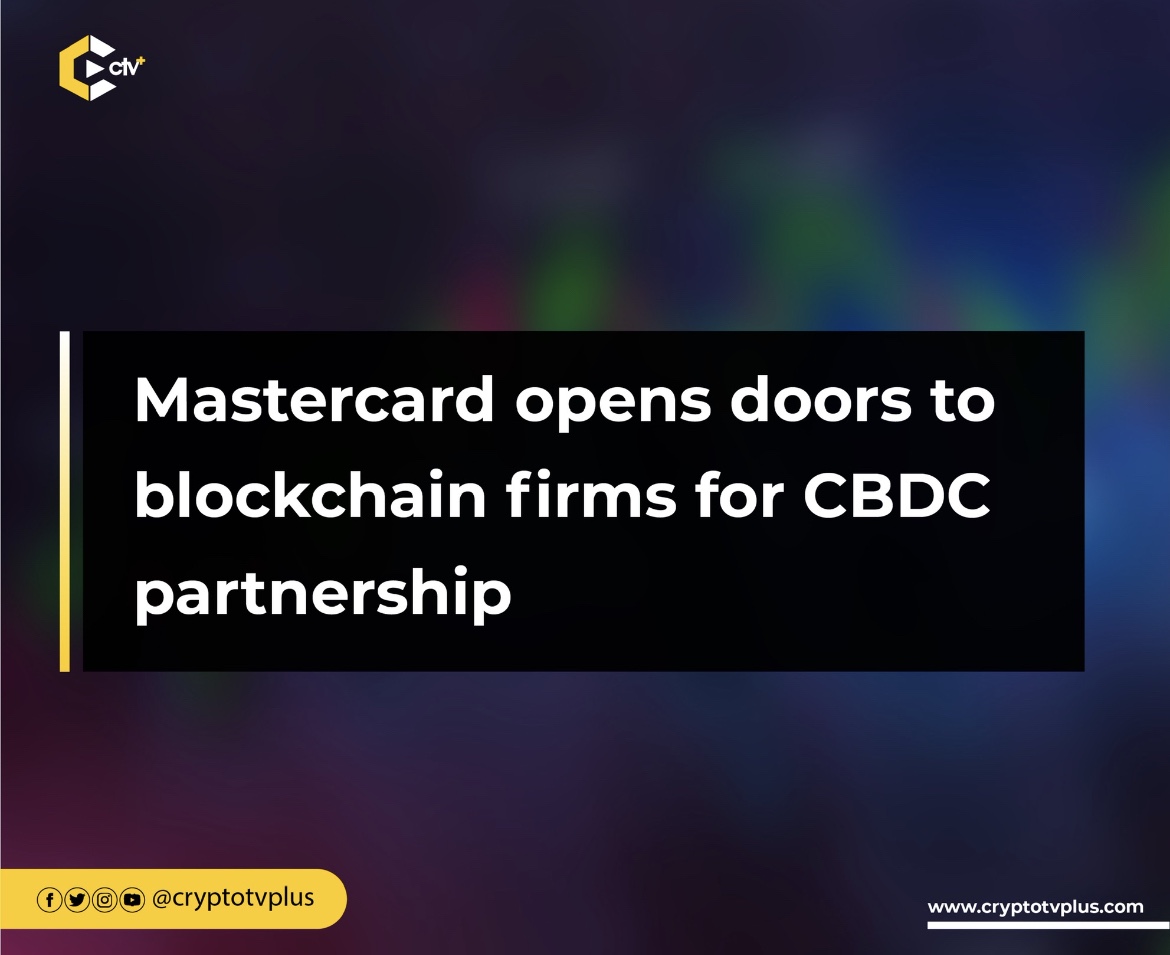News
Mastercard opens doors to blockchain firms for CBDC partnership

Mastercard is bringing together a collection of top blockchain technology and payment service companies to join its new CBDC Partner Program in an effort to promote a better understanding of the advantages and limits of CBDCs and how to deploy them in a way that is safe, simple, and beneficial. According to Raj Dhamodharan, head of digital assets and blockchain at Mastercard, it is intended to encourage collaboration with significant players in the sector so they may promote innovation and efficiency.
The launching group of partners includes the CBDC platform Ripple, the blockchain and Web3 software company Consensys, the digital identity consultant Consult Hyperion, the security technology company Giesecke+Devrient, the multi-CBDC and tokenized assets solution provider Fluency, the digital identity technology provider Idemia, and the digital asset operations platform Fireblocks.
Along with working on four CBDC pilots, their initiatives include Consult Hyperion’s work with payment processors and central banks to define their CBDC requirements, Fluency’s work to create interoperability between various CBDCs, Ripple’s launch of the first government-issued national stablecoin in partnership with the Republic of Palau, and Consult Hyperion’s work with central banks to define their CBDC requirements.
According to Dhamodharan, Mastercard thinks that interoperability between the various payment options and payment choices are critical elements of a thriving economy. He strongly believes that the ability to use the value held by a CBDC as easily as other kinds of money will be crucial as we move toward a more digitally-driven future.
The German company Giesecke+Devrient, a partner in the CBDC program, has a history of producing currency that goes back 170 years. The company’s current area of expertise is protecting both physical and digital assets. It collaborates with central banks to introduce digital currencies and provides its CBDC technology, known as G+D Filia, which enables safe offline transactions. This functionality is crucial to ensuring that as many people as possible can use CBDCs and can still access their funds in the event of connectivity issues or power outages. Various wallet types and IoT devices can be used with Filia to make online and offline payments.
Sebastian Baierle, manager of strategic alliances for CBDC at G+D, commented on this and said that while there is a growing need for a public digital currency, the goals vary from nation to nation. What has been observed is that cash is still present, and that won’t change.
To counteract this, according to Baierle, the Bank of Ghana intends to use CBDCs to integrate more of its residents into the formal financial system. The Bank of Ghana is collaborating with G+D on its CBDC experiment.
Limitations to CBDCs
There is still a lot to research in this cooperation as the technology develops. CBDCs are not yet widely accepted. More than two-thirds of central banks think they are unlikely to create a digital currency that people can use for everyday transactions in the near future, despite the BIS’s prediction that up to 24 central bank digital currencies will be in circulation by the end of the decade.
Varun Paul, who most recently served as the head of the Bank of England’s fintech hub and now is in charge of Fireblocks’ CBDC and market infrastructure, claims that this is largely due to the complexity of the issues at hand. For instance, in order to stop criminal activity while protecting a person’s right to privacy, central banks must figure out how to strike the correct balance between privacy and transparency.
Users place a high value on privacy. According to Jerome Ajdenbaum, who oversees Idemia’s digital currency operations and recently conducted research on the digital euro. It is by far the most talked-about topic. The user must be shown that their privacy is safeguarded, “not just that we promise,” he continues.
Idemia creates cryptographic methods for offline payments to protect people’s privacy while still having enough control to stop fraud. In order to determine the appropriate amount of privacy for its CBDC initiative, the company has teamed up with the Bank of England on precisely this subject.
The challenge of encouraging individuals to adopt the new digital currency is another issue. According to Paul of Fireblocks, in the few nations where CBDCs have been formally adopted, some citizens have been hesitant to use a currency they are unfamiliar with.
As a result of last year’s “crypto winter,” which was marked by scandals that put the faith of the digital ecosystem at risk, there may be more reluctance than before. Recent high-profile crashes, according to Paul, have actually made the case for CBDCs stronger because they are fully supported by the government and central bank, similar to how ordinary money is.
Read also;












